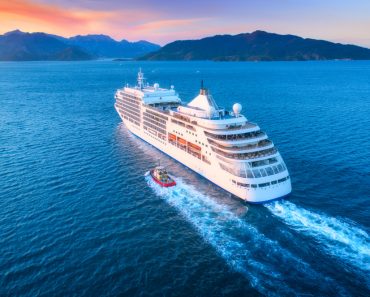Table of Contents (click to expand)
Piracy persists due to the vastness of maritime territories, weak governance, technological adaptability, complex laws, and limited resources.
Piracy, once a romanticized relic of the past, has resurged as a global menace in the modern era. Despite concerted efforts to eradicate piracy, it persists in various regions, posing serious threats to maritime trade, human lives, and global security. For those of you who thought that pirates only exist in period dramas, be prepared to be disappointed.
Recommended Video for you:
Historical Roots Of Piracy
Piracy’s origins can be traced back thousands of years, but its iconic image, epitomized by figures like Blackbeard and Captain Kidd, emerged during the classic era of piracy from the 17th to the 19th centuries.
This period saw pirates wreaking havoc in regions like the Persian Gulf and the Caribbean. To effectively combat piracy, European powers, using legislation like the General Maritime Treaty of 1820, had to unite their efforts.
Pirates did not disappear completely, and their legacy continued to shape piracy’s new forms. Mediterranean piracy, driven by economic motives and historical conflicts, remained a significant concern.
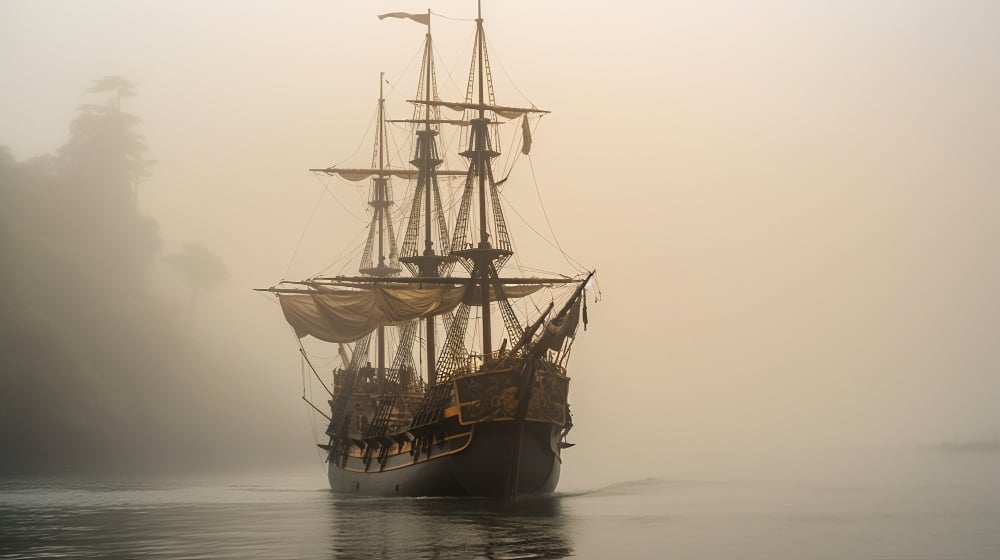
Corsairs operating from North African ports like Algiers, Tunis, Tripoli, and Morocco targeted Christian powers, engaging in both sea raids and slave raids. The Barbary pirates, often operating as privateers with tacit state support, preyed on Western Christian ships, leaving a legacy of mistrust and conflict.
Pirates In The Contemporary World
Modern piracy is characterized by pirates using small boats to target vulnerable cargo vessels. They exploit regions with limited naval presence and high maritime traffic. Pirates often take hostages for ransom and resort to violence, posing a danger to both seafarers and the global shipping industry.
Navigating the high seas isn’t always smooth sailing, and in some corners of the world, modern-day pirates still lurk and thrive. Somalia, notorious for its piracy surge, continues to keep maritime authorities on their toes, reminding us of pirates’ remarkable adaptability.
Meanwhile, in the Indonesian archipelago, where countless islands crisscross the Strait of Malacca, a vital trade route, piracy has been a persistent thorn in the side of shipping operators. Despite some improvement, pirates maintain a strong presence in Indonesian waters.
Poverty and resource limitations have also made Bangladesh susceptible to piracy, which has had a notable impact on its fishing industry. However, international cooperation, including naval exercises, has begun to stem the tide. In Nigeria, the epicenter of West African maritime piracy, the focus isn’t just on treasure chests, but valuable cargo like oil.
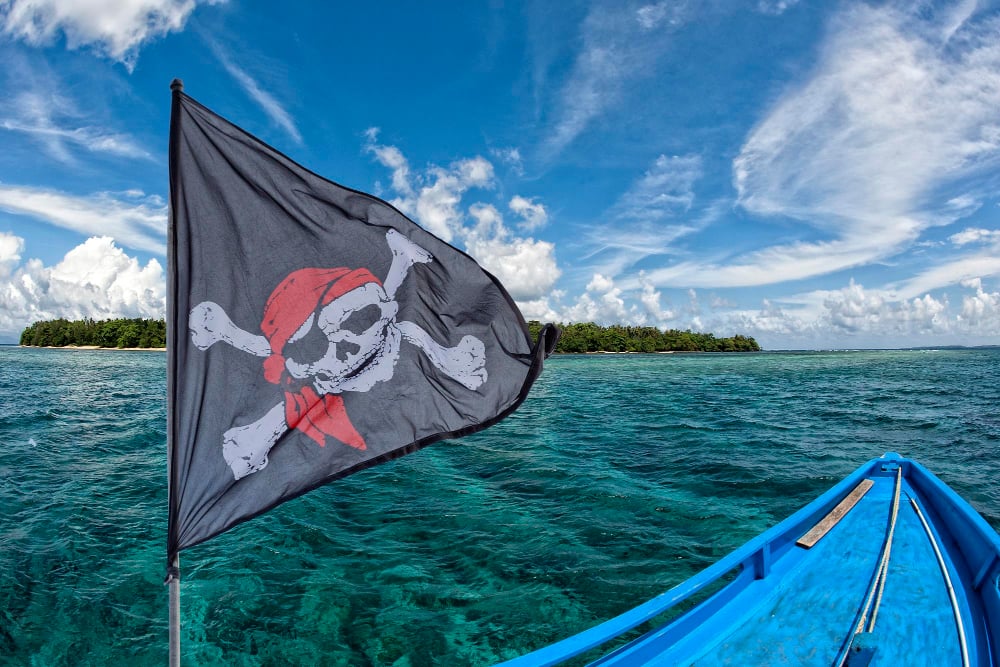
These contemporary piracy hotspots are a stark reminder that the age-old battle against seafaring marauders endures in our modern world.
Economic And Human Cost
Piracy, like a shadowy specter, casts a dark cloud over society and the global economy, exacting a heavy toll that extends far beyond the high seas. First and foremost, there’s the human toll, with pirates frequently taking hostages, leading to violent confrontations that result in the tragic loss of life and grievous injuries, impacting both courageous seafarers and innocent civilians.
The ripple effect of piracy spreads to shipping practices, as vessels resort to risk-avoidance measures, such as increasing speed or taking meandering routes, which inevitably increase transportation expenses.
The specter of theft on the high seas also haunts the financial realm, with insurance rates for shipping companies skyrocketing due to the constant threat of stolen cargo. As a defense, shipping vessels now employ armed guards and invest in anti-piracy equipment, further bloating operational costs. The menacing presence of piracy even reaches shorelines, where local economies, particularly those heavily reliant on industries like fishing, bear the brunt of pirate-induced disruption.
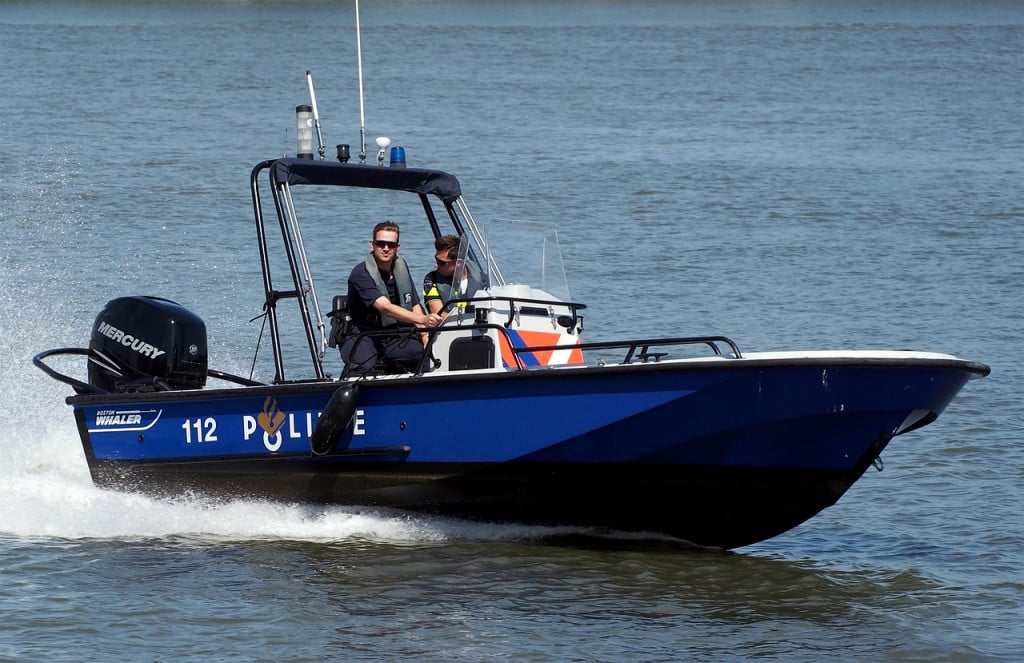
Perhaps most hauntingly, piracy’s shadow stretches thin the already limited military resources of impoverished nations, diverting much-needed funds away from broader security concerns. In this chilling tale, piracy emerges as a formidable adversary, leaving no facet of society or the global economy untouched by its nefarious grip.
Legal Frameworks And Challenges
Addressing piracy requires a complex legal framework. Piracy within a nation’s territorial waters can be prosecuted by that nation, but on international waters, the United Nations Convention on the Law of the Sea (UNCLOS) applies, emphasizing cooperation among states to repress piracy. Determining jurisdiction and prosecuting pirates can be challenging, particularly when different laws and jurisdictions are involved.
Efforts to combat piracy involve international naval patrols, improved ship security measures, and legal action against pirates. For instance, the United States has engaged in strong anti-piracy efforts, imposing harsh penalties on captured pirates.
The battle against piracy is akin to facing a formidable hydra, a creature with multiple heads, each representing a unique challenge. Vast maritime territories demand not only substantial resources, but also global cooperation to patrol them effectively. Weak governance in piracy-prone regions acts as a protective shield for these maritime marauders. The temptation of hefty ransoms fuels the profitability of piracy, making it a lucrative venture.
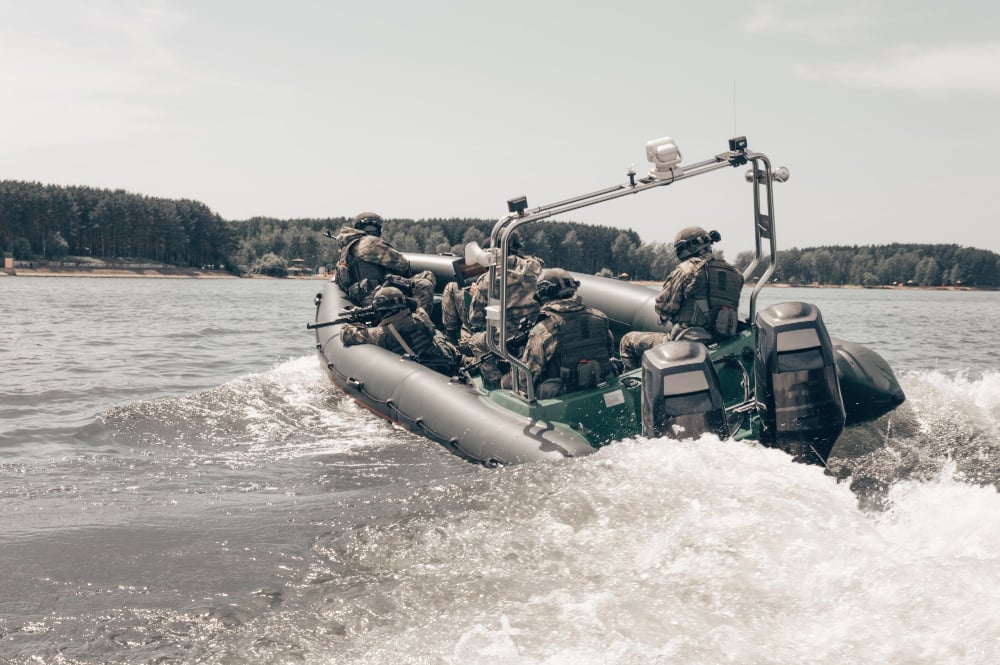
Pirates are not strangers to modern technology, which adds another layer of complexity to anti-piracy efforts. The unsettling truth is that some corrupt officials may secretly support these criminals, further complicating an already complex matter. Navigating nuanced legal frameworks can be a headache when it comes to prosecuting pirates, while ensuring the safety of hostages becomes a humanitarian tightrope act.
Moreover, piracy isn’t just a threat on the high seas; it disrupts global trade and supply chains, affecting all of us. Unraveling this age-old problem requires addressing deep-rooted historical factors, while recognizing the stark reality that many nations simply lack the resources needed for effective patrolling.
Conclusion
Piracy, both a historical and contemporary challenge, continues to threaten maritime security, global trade, and human lives. While progress has been made in reducing piracy in certain regions, its resilience underscores the need for ongoing efforts.
Combating piracy requires a multifaceted approach, including international cooperation, legal reforms, and addressing the root causes. Only through concerted and sustained action can the international community hope to bring an end to piracy and secure the world’s oceans for future generations.
References (click to expand)
- Sandkamp, A., Stamer, V., & Yang, S. (2021, October 8). Where has the rum gone? The impact of maritime piracy on trade and transport. Review of World Economics. Springer Science and Business Media LLC.
- What to do about piracy?.
- Nikolić, N., & Missoni, E. (2013, September 1). Piracy on the High Seas—Threats to Travelers' Health. Journal of Travel Medicine. Oxford University Press (OUP).
- Percy, S., & Shortland, A. (2013, February). Contemporary Maritime Piracy: Five Obstacles to Ending Somali Piracy. Global Policy. Wiley.



